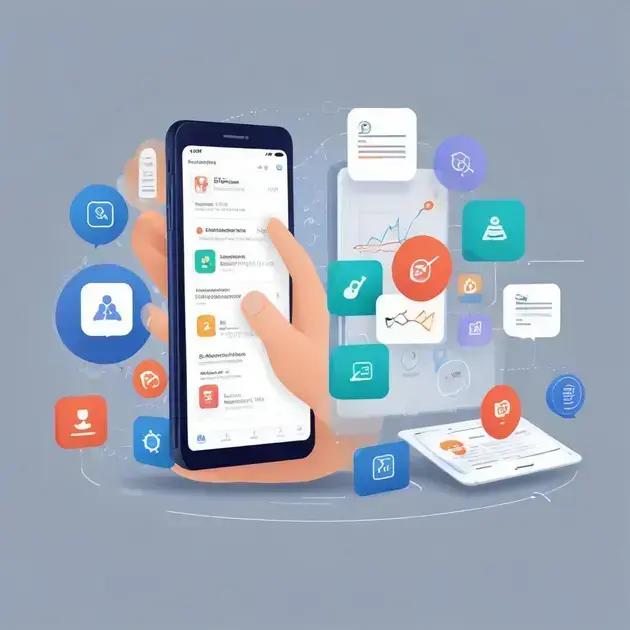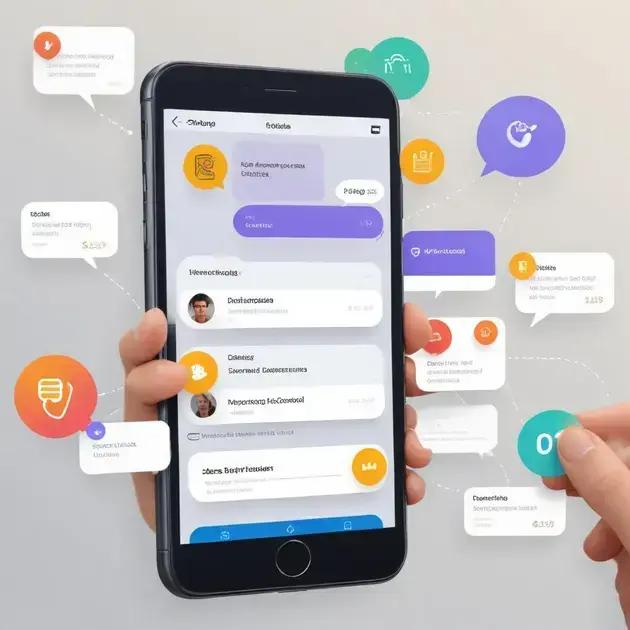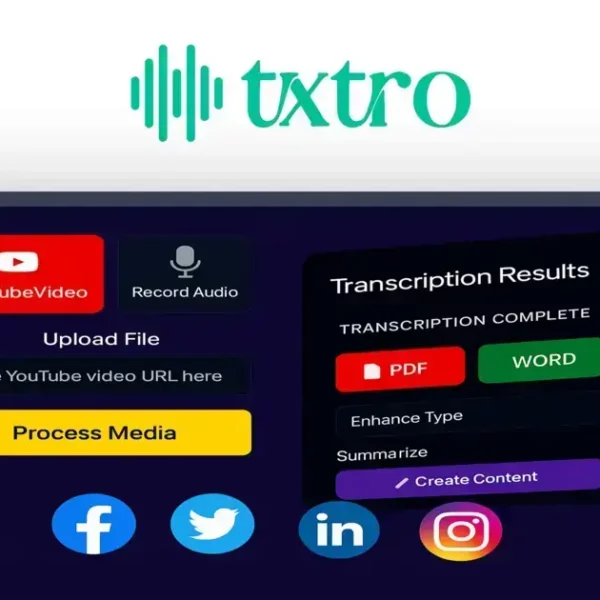Mobile apps for business enhance efficiency by increasing customer engagement, providing 24/7 accessibility, and offering personalized experiences. They integrate advanced features like AI and analytics, ensuring businesses can meet customer needs while staying ahead of trends in technology.
Mobile apps for business are changing the way companies operate, offering unparalleled efficiency and customer connection. With the right app, businesses can streamline operations, enhance productivity, and engage customers in real-time. In this article, we’ll dive into what mobile apps are, their benefits, how to choose the right app, and the future trends that can help your business thrive.
What Are Mobile Apps for Business?
Mobile apps for business are software applications designed to run on mobile devices, such as smartphones and tablets, tailored to meet specific business needs. These apps can enhance operational efficiency, boost productivity, and improve customer interactions by providing features unique to mobile technology.
Types of Mobile Apps for Business
There are several types of mobile apps that businesses can use, including:
- Native Apps: Built for a specific operating system (iOS or Android), native apps provide high performance and a rich user experience.
- Web Apps: Accessed through web browsers, these apps are cross-platform and can be used on any device with internet connectivity.
- Hybrid Apps: Combining elements of both native and web apps, hybrid apps provide versatility and can be developed more quickly.
Key Features of Mobile Apps for Business
Effective mobile apps typically include features like:
- User-Friendly Interface: A design that is easy to navigate enhances user experience and encourages repeat usage.
- Real-Time Data Access: Users can access important information and updates immediately, keeping them informed.
- Push Notifications: Businesses can send reminders and alerts directly to users, promoting engagement and timely responses.
With the right mobile app, businesses can significantly improve their operations, customer service, and overall efficiency.
Benefits of Using Mobile Apps for Your Business

Using mobile apps for your business presents a wealth of benefits that can enhance your operations and improve customer relationships. In today’s fast-paced world, having direct access to your services and products through mobile devices is crucial.
Increased Customer Engagement
Mobile apps allow businesses to engage customers more effectively. With features such as push notifications, companies can send reminders, updates, and promotional offers directly to users’ devices, increasing the chances of interaction.
Improved Accessibility
Having a mobile app means your business is just a tap away for your customers. They can easily access services, make purchases, or contact support without the need to navigate through a website on their mobile browser. This accessibility can lead to increased sales and customer satisfaction.
Enhanced Customer Experience
Mobile apps can provide personalized experiences for users. By using data to tailor content and offers to individual preferences, businesses can create a more satisfying journey for their customers. Features like easy navigation, quick access to information, and fast checkouts all contribute to a better user experience.
Streamlined Operations
Mobile apps can help streamline business processes. For example, apps can facilitate internal communications, manage inventory, or offer project management tools. This leads to enhanced productivity and efficiency within the organization.
Data Collection and Analysis
Mobile apps enable businesses to gather valuable data about customer behavior and preferences. Analyzing this data can provide insights that help businesses optimize their offerings and marketing strategies, ultimately driving growth.
Choosing the Right Mobile App for Your Business
Choosing the right mobile app for your business is crucial to achieving success and enhancing efficiency. A well-selected app can cater to your business needs and significantly improve customer engagement.
Identify Your Business Needs
Start by analyzing the specific needs of your business. Consider the processes that require improvement, whether it’s customer communication, inventory management, or sales tracking. A clear understanding of your objectives will help you choose an app that aligns with your goals.
Evaluate Features and Functionality
Different mobile apps offer various features. Look for apps that provide essential functionalities such as:
- User Management: Ease of handling customer profiles and information.
- Analytics: Tools for tracking performance and understanding user behavior.
- Integration: Capability to connect with existing software or platforms.
Prioritize apps that are user-friendly and have the features that matter most to your business.
Consider Cost and Scalability
Evaluate the cost of the app and whether it fits within your budget. Some apps require upfront fees, while others may have subscription models. Additionally, consider whether the app can scale with your business as it grows, allowing for additional features and users in the future.
Look for User Reviews and Recommendations
Before making a final decision, research user reviews and seek recommendations from other businesses. Real-world feedback can provide insight into the app’s performance, support quality, and any potential issues.
Test the App Before Committing
Whenever possible, opt for a trial or demo version of the app. This allows you to explore its interface and features firsthand, ensuring it meets your requirements before making a long-term commitment.
How Mobile Apps Transform Customer Engagement

Mobile apps transform customer engagement by providing businesses with powerful tools to interact with their audience more effectively. In an era where technology is a crucial part of daily life, having a mobile app can help you connect with customers in real-time, building loyalty and enhancing experiences.
Personalized Communication
Mobile apps allow businesses to send personalized messages and promotions directly to users. By analyzing user data, businesses can tailor content to match individual preferences, increasing relevance and response rates. This level of personalization fosters a stronger connection with customers.
24/7 Accessibility
With mobile apps, businesses are accessible around the clock. Customers can engage with your services, explore products, or make inquiries whenever they want, leading to heightened satisfaction. This constant availability encourages users to interact at their convenience.
Real-Time Updates and Notifications
Push notifications are a powerful tool for encouraging customer engagement. Businesses can send updates about new products, special offers, or events instantly, ensuring that customers are always informed. This immediate line of communication keeps your brand at the forefront of their minds.
Enhanced Customer Feedback
Mobile apps can facilitate easy feedback collection from customers. In-app surveys or rating systems allow users to express their opinions quickly, helping businesses understand their audience better. This feedback is invaluable for making improvements and enhancing customer satisfaction.
Building a Community
Mobile apps can serve as platforms for building communities around a brand. Features like forums, chat functionalities, or social sharing options encourage customers to interact with each other and your brand, fostering a sense of belonging and loyalty.
Future Trends in Mobile Apps for Business
As mobile technology continues to evolve, so do the trends in mobile apps for business. Staying ahead of these trends can give your business a competitive edge and enhance customer satisfaction.
Increased Use of Artificial Intelligence
Artificial Intelligence (AI) is becoming more integrated into mobile apps. Businesses are using AI to offer personalized experiences by analyzing user behavior and preferences. AI can also help automate tasks like customer support through chatbots, making interactions more efficient.
Augmented Reality (AR) Applications
AR is another exciting trend that businesses are adopting. AR apps can enhance customer experiences by providing interactive and engaging content. For example, retailers can allow customers to visualize products in their environment before making a purchase, helping to bridge the gap between physical and digital shopping.
IoT Integration
The Internet of Things (IoT) is creating new opportunities for mobile apps. Businesses can connect their apps to smart devices, allowing for seamless interactions and data sharing. This integration can lead to improved operations, such as real-time inventory management or enhanced customer interaction through connected devices.
Focus on Security and Privacy
With increasing concerns about data privacy, future mobile apps will likely place a stronger emphasis on security features. Businesses need to protect user data with advanced encryption methods and transparent privacy policies to build trust and compliance with regulations.
Emphasis on User Experience (UX)
Providing an excellent user experience will remain a top priority. Future apps will focus on intuitive design, fast loading times, and minimalistic interfaces to ensure users can navigate easily. Continuous feedback loops will allow businesses to refine their apps and keep customers satisfied.
Wrapping Up the Power of Mobile Apps in Business
Mobile apps are essential tools for businesses looking to enhance efficiency and engage customers better. The key benefits of using mobile apps include increased customer engagement, improved accessibility, and personalized communication. As technology advances, we see exciting trends emerging, such as AI integration, augmented reality features, and a stronger focus on security.
By choosing the right mobile app for your needs and staying aware of trends, your business can thrive in the competitive landscape. Embrace these tools to unlock new opportunities and drive growth, ensuring your business stays relevant and successful in a mobile-first world.
FAQ – Frequently Asked Questions about Mobile Apps for Business
What are the main benefits of using mobile apps for my business?
Mobile apps increase customer engagement, improve accessibility, and provide personalized communication, all of which can boost sales and customer satisfaction.
How can mobile apps transform customer engagement?
Mobile apps enhance customer engagement by offering personalized messages, allowing 24/7 access, providing real-time updates, and facilitating community interactions.
What features should I look for in a mobile app for my business?
Look for user-friendly interfaces, essential functionalities like analytics and user management, and features that can easily integrate with your existing systems.
How can I ensure my mobile app is secure?
To ensure security, use advanced encryption methods, regularly update the app, and have clear privacy policies to protect user data.
What future trends should I be aware of in mobile app technology?
Be aware of trends such as AI integration, augmented reality applications, increased focus on security, and the importance of user experience.
How can I collect feedback from users through a mobile app?
You can include surveys, rating systems, or feedback forms in the app to easily gather user opinions and improve your offerings.




